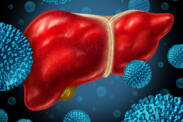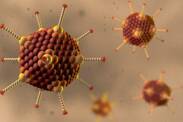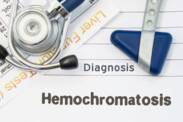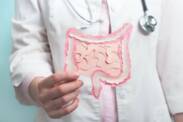Digestion and the gastrointestinal tract

What diet is best for pancreatitis?
Pancreatitis afflicts a high percentage of patients. It causes various problems, including pain, which cannot be managed without medication and a strict diet. Proper diet and strict dietary restrictions are important, especially in the acute phase of the disease.

Pancreatic cancer: causes, symptoms, stages, investigation and treatment?
Pancreatic cancer is the most insidious cancer with the highest mortality rate ever. The first symptoms usually appear only at an advanced stage, when treatment is almost impossible. More than 95% of patients diagnosed die from it. Only about 2% live to 5 years.

What to know about pancreatitis? Acute, chronic: causes and manifestations
Pancreatitis is an inflammatory disease of the pancreas that is wrongly attributed exclusively to alcohol-dependent patients. Current scientific evidence shows that less than 10% of alcoholics suffer from it. Thus, the coexistence of other risk factors is also at the etiopathogenetic forefront.

Lower Abdominal Pain: Causes and Symptoms
Pain in the lower abdomen troubles women or men for a variety of problems that are normally benign. However, behind this type of pain can also hide a serious disease.

Viral hepatitis A: Is lack of hygiene to blame for transmission?
When we hear the words viral hepatitis or hepatitis, many of us think of a syringe addict. To some extent, this image is based on truth. Hepatitis has many types. There is a type that people can get infected with even without being addicted to psychotropic substances. Poor hygiene habits, but also travel to risky countries, result in the emergence of various diseases. One of them is the just mentioned viral hepatitis type A.

Coeliac Disease: Causes, Symptoms, Treatment
Coeliac disease is an autoimmune disease of the small intestine. A person suffering from this disease is unable to digest gluten. The problem is, gluten is a common component of food.

Listeria and contaminated food: Why does it occur, how does it manifest itself?
Listeriosis is a serious bacterial disease with a poor prognosis. If left untreated or treated too late, it can result in death. Despite the good sensitivity of listeria to antibiotic treatment, it still poses a threat. Weak individuals and pregnant women are at risk. The average person is most often infected by contaminated and inadequately prepared food. In these, the bacterium thrives especially in the warmer temperatures that the summer months bring.

What is histamine intolerance, what are the causes, symptoms and treatment?
Histamine intolerance is hypersensitivity to histamine. It's not an allergy. Histamine is produced naturally in our body, but we also take it through food consumption. Some contain more of it, and it causes a variety of difficulties for people suffering from it.

When is black stool normal and when to see a doctor? Blood in the stool
It can be the first symptom of a serious disease, but it can also be the result of our diet. Black stools (sometimes also called melena) are caused by the consumption of certain types of drugs, foods, dietary supplements, but they can also be the only indicator of upper gastrointestinal bleeding. In general, an average of 8 to 10% of people die from gastrointestinal bleeding. Therefore, this warning sign should never be taken lightly and we should look for the real cause of its occurrence.

Diverticulosis and diverticulitis: What are its causes and symptoms? + Treatment
Diverticulosis and diverticulitis are common diseases, especially in developed countries. At age 40, it affects approximately 10% of people, over 60 years of age, 50%, and at age 80, the incidence is almost 100 percent. It mainly affects the large intestine and its sigmoid part.

What is infectious hepatitis and how is it transmitted? (Hepatitis A/B/C/D)
Hepatitis is the name sometimes given incorrectly to inflammation of the liver, or hepatitis. The main reason for this name is the symptom, i.e. yellowing of the skin, technically also icterus. Hepatitis is caused by a virus. There are several subtypes of hepatitis. Infection can be through food, meat, water. Transmission through bodily fluids, blood. Contact, kissing, injection, in the past also transfusion.

Are you suffering from stomach ulcers? These are the most common causes
Gastric and duodenal ulcers are diseases of civilisation, affecting approximately 10% of the population. They are caused by an imbalance between protective factors and aggressive factors.

How to recognize appendicitis? What symptoms does it have?
Abdominal pain is one of the main symptoms of appendicitis. The appendix is basically a worm-like protrusion (appendix) at the beginning of the large intestine.

Balantidiasis: what are the causes and symptoms of this intestinal disease?
Balantidiasis is a rare infectious disease of the human colon and digestive tract. What causes balantidiasis, what are its first symptoms and treatment options?

Adenovirus infection: what is adenovirus, what is its transmission and symptoms?
Adenoviruses cause mainly acute respiratory diseases in humans. However, they can attack various body systems. What is an adenovirus and how is the disease transmitted? What is the appropriate treatment and preventive measures?

Celiac Disease: Identification, Causes, Symptoms, Treatment
Celiac disease is a lifelong condition that requires the complete absence of gluten in the diet. You ask: Why? And what are the consequences of ignoring the diet and leaving the disease untreated?

Crohn's disease: what is it, why does it occur and what are its symptoms?
Crohn's disease is an inflammatory bowel disease. It causes many problems. Why does it occur and how does it manifest itself?

Hemochromatosis and iron problem? Why does it occur and what are the symptoms?
Hemochromatosis refers to a disorder of excessive iron absorption in the human body. How does this disease arise and what are its first symptoms?

Ileus: What is intestinal obstruction and what are its symptoms and causes?
Ileus is a health problem related to the digestive tract. It is a disorder of intestinal patency. It is one of the so-called sudden abdominal episodes. In some cases, ileus is a life-threatening condition and requires early medical intervention. What are its main causes and how to recognize its characteristic symptoms?

Liver failure: what is it and what symptoms does it have?
Liver failure means that the liver is not adequately performing its functions. It is a life-threatening condition that requires immediate treatment.









